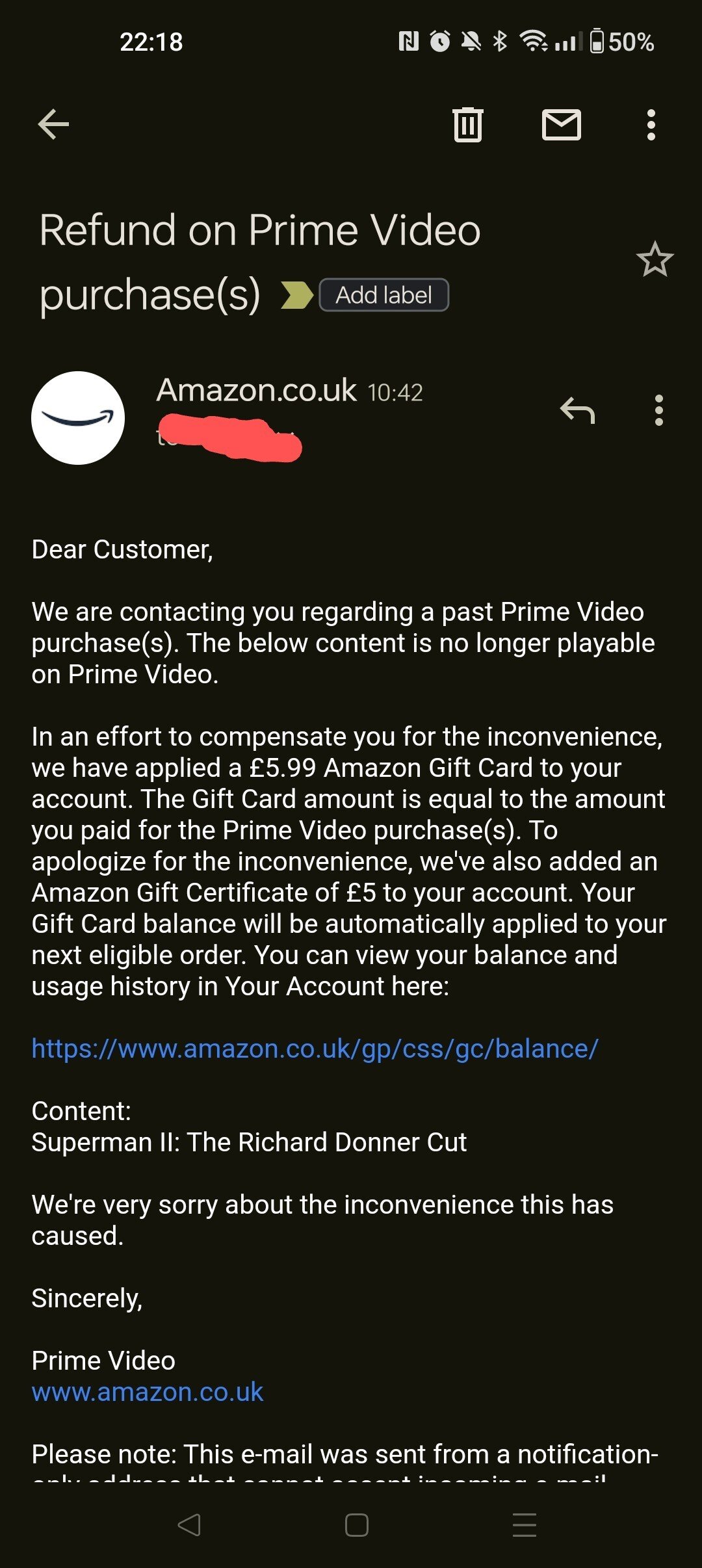this post was submitted on 03 Oct 2023
4 points (100.0% liked)
Technology
59099 readers
3151 users here now
This is a most excellent place for technology news and articles.
Our Rules
- Follow the lemmy.world rules.
- Only tech related content.
- Be excellent to each another!
- Mod approved content bots can post up to 10 articles per day.
- Threads asking for personal tech support may be deleted.
- Politics threads may be removed.
- No memes allowed as posts, OK to post as comments.
- Only approved bots from the list below, to ask if your bot can be added please contact us.
- Check for duplicates before posting, duplicates may be removed
Approved Bots
founded 1 year ago
MODERATORS
you are viewing a single comment's thread
view the rest of the comments
view the rest of the comments

The only thing that surprises me is that anyone is surprised by this. If you buy a physical book from anywhere, you own it. If you "buy" the rigth to play a movie (or read a book) from amazon, you own nothing. Usually they don't show that so clearly but that's the reality.
Even that isn't strictly true, as IP laws metasticize and mutate over time. But its far more expensive to try and reclaim a book than to revoke a digital license on a 3rd party repository.
If you kept your digital copy of a digital book on an e-reader in airplane mode, you'd have as much access to that as any trade paperback. And backing up my collection of PDFs to a drive is significantly easier than shouldering a shelf's worth of books.
The fundamental issue with digital media is that its ultimately convenient to access a central digital archive than to keep your own personal collections on hand and catalogued. But then you have to ask the question "Who controls that central digital archive?" And if its a bad actor, there's your problem. Its the same problem physical libraries have, too. Don't let the guy who burned down the Library of Alexandria run your neighborhood branch. Don't let Ron DeSantis near it, either.